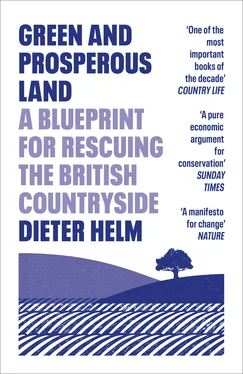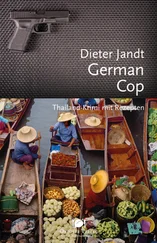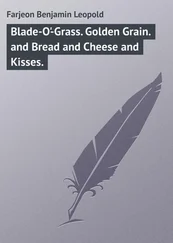There are those who decry economic approaches to the environment; who claim that they overlook the beauty and spiritual values and intrinsic nature. They make a good point when the target is a narrow and crude cost–benefit analysis. But they are wrong in two key ways: prosperity is a broad, not a narrow, concept; and the value to people of nature and all its beauty is every bit as important as the health benefits of clean water. The conventional metric of economic success, Gross Domestic Product (GDP), is a pathetically poor measure of what we get out of nature; and if conservation and enhancing the environment does not make economic sense then the evidence from the last two centuries at least is that it will be neglected. Sadly, appealing to intrinsic nature and spiritual values has not worked so far.
AI, artificial intelligence
AONB, Area of Outstanding Natural Beauty
BBOWT, Berkshire, Buckinghamshire and Oxfordshire Wildlife Trust
BEIS, Department for Business, Energy and Industrial Strategy
BSE, bovine spongiform encephalopathy
CAP, Common Agricultural Policy
CFP, Common Fisheries Policy
CLA, Country Land and Business Association
DDT, dichlorodiphenyltrichloroethane
DEFRA, Department for Environment, Food and Rural Affairs
EEC, European Economic Community
ELMS, Environmental Land Management Scheme
ESG, Environmental, Social and Governance
GDP, Gross Domestic Product
GM, genetically modified
GPS, global positioning system
HS2, a planned high-speed railway project
NCC, Natural Capital Committee
NFU, National Farmers’ Union
NGO, non-governmental organisation
NRA, National Rivers Authority
OEP, Office for Environmental Protection
OFWAT, Water Services Regulation Authority
ONS, Office for National Statistics
RSPB, Royal Society for the Protection of Birds
SEPA, Scottish Environment Protection Agency
SSSI, Site of Special Scientific Interest
TB, tuberculosis
Introduction
OUR NATURAL CAPITAL INHERITANCE
Britain’s natural environment is shaped by its past and its biodiversity. Few locations on the planet have had such a turbulent past visibly carved into the landscape. In the Hebrides, some of the oldest rock formations on the planet, dating back 3 billion years, have broken the backs of crofters for generations. The Carboniferous age left coal and limestone not only in the Pennines, but also in the pavements of our cities and the industrial landscape that coal enabled. In the Lake District, the glaciers’ ghosts are all around, while the South Downs show the ripples of the distant collision of Italy and the African tectonic plate into Europe.
The more recent physical severing of the land link to the European Continent, as the rising waters in the North Sea broke through between what is now Calais and Dover, cut off the migration of terrestrial species. The Irish Sea opened up, cutting Britain off from Ireland too. The snakes never made it to Ireland as the ice melted. In a smaller Britain (and even smaller Ireland) without many migratory replacements, it made it all the easier to exterminate some of Britain’s fauna. There are no bears, bison or wolves left. There is no land bridge to return on.
Being cut off has had its climatic effects too. Surrounded by sea, warmed by the Gulf Stream, Britain does not experience the deep freezes of Continental Europe. Its winters are comparatively mild. And its shorelines attract many winter visitors.
This is our inherited natural capital. It is what nature has endowed us with. Yet most of us are unaware of most of this for one very crucial reason. Our natural environment has been massively modified by humans over the last 8,000 years, and mostly in the last 200 years. Where once the Lewisian gneisses and the limestone and U-shaped glacial valleys would have been the hard constraints that people had to work with and around, now these hardly matter at all. We have so modified our world that, for many, nature appears hardly relevant. We may still rely on the land for agriculture, but agriculture is no longer the overwhelming driver of our economy. While, before 1800, the economy was mostly about farming and the trade in agricultural produce, with an empire built on food and crops, this is no longer the case. Farming now represents less than 1 per cent of GDP, and at least half of that is propped up by subsidies. A bad farming year no longer induces hardship and famine. In economic terms it just does not register. Fishing is now an even less consequential part of the economy, employing only a few thousand people.
Nature may not be man-made, but we as the ultimate eco-engineers increasingly shape it. Britain is a leading exemplar of the Anthropocene, a new geological age defined by human impact. There is nothing truly wild left. Much of the fauna has ingested plastic of one form or another, and the fashion for rewilding is best seen as just another form of eco-engineering, a switch from one man-made landscape to another. Wild, as a concept, has lost its practical meaning, even if its cultural power remains.
For all the angst this human transformation of nature causes environmentalists, it is not only a fact on the ground, it is also one that has proved remarkably successful from a human perspective. Over the last couple of centuries, we have broken out of thousands of years of virtually zero economic growth. The Industrial Revolution, and then the Age of Oil in the twentieth century, ushered in a wholly new historical experience. A cornucopia of new technologies raised the population out of poverty and into a material existence that has got better for each generation. Even two twentieth-century world wars could not dent the march of economic growth and prosperity. As nature declined, GDP kept going up.
For the bulk of the population, what was not to like about this? True, there might be fewer swallows and flycatchers, and the sound of the cuckoo might get rarer, but very many people have never seen or heard any of these anyway, and probably never will, except on a screen. They might watch the BBC’s Planet Earth and be sad that so much is being lost (and angry about the pollution), but in our democracy access to housing and health services counts for much more. When it comes to actual spending, the environment comes way down the list of priorities, and where spending does come into play, it has often been to pay farmers to do sometimes dubious things to what is left of nature. If it goes ahead, the high-speed railway project, HS2, is likely to far exceed its original budget of £56 billion; the core annual budget for DEFRA (Department for Environment, Food and Rural Affairs) and its associated agencies – spent on foods and farming, rural interests, and the environment – is less than £3 billion. In other words, it would take more than 20 years of DEFRA environmental spending to exhaust the HS2 budget. Already, before even starting, HS2 has burnt through more than one year’s total DEFRA spending.[1]
Faced with this onslaught, and the relative indifference of much of the population, those for whom nature really matters have been ploughing their own narrow furrow. Naturalists study in meticulous detail the declines of particular species and habitats. They band together to oppose building on sensitive sites, and they talk to each other in trusts, charities and campaign groups. It is largely a voluntary, amateur and charitable crusade, and it always has been. They feel under siege and try to hang on to what is left. They stand on the beach Canute-like and try to hold back the tide. They count the losses.
It has been a picture of comprehensive defeats, punctuated by the occasional success. These are often hugely symbolic, and where they focus on readily observable species, they garner a lot of support. Farmers may gripe about the impact on lambs, and grouse-shooters might complain about their precious game birds, but the recovery of the golden eagles, the reintroduction of sea eagles and red kites, and the sound of buzzards now over much more of the landscape are all hard-won victories for the small bands of environmental brothers and sisters.
Читать дальше











